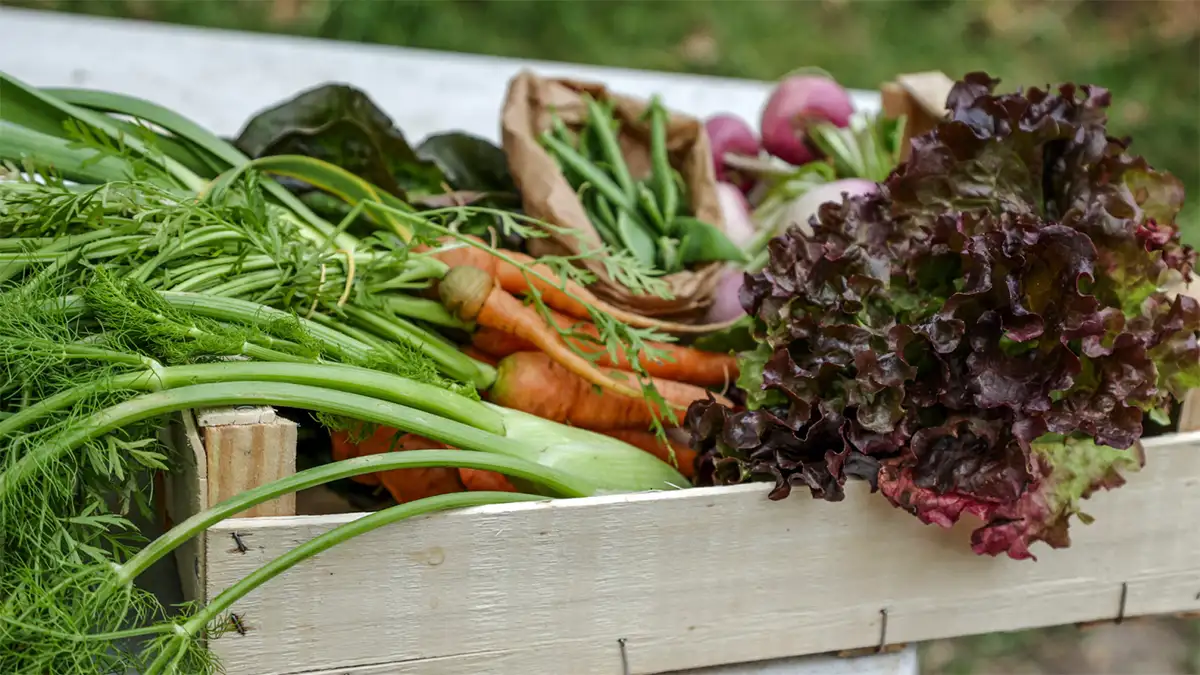It’s common to wonder: Why does organic cost more? But first, we want to bust the myth and note that organic doesn’t always cost more, and is often comparable in price to conventional goods. In fact, this Canadian case study found that in some instances, common organic grocery items were actually cheaper than the conventional alternative.
When organic does cost more, it can be because:
- Organic farming is more labour intensive and requires more space. For example, there is a limit to how many organic animals can be in a designated space, and natural fertility building strategies like green manures mean organic farmland is not always planted with a crop destined for market.
- Organic producers and processors are required to keep meticulous records from seed to sale, and pay an annual fee for certification of their products.
- Conventional food benefits from a well organized supply chain with high volumes and competition among retailers. This can hide the true costs of growing and selling food.
This is all to say that when you buy organic, you are investing in more than just good food:
Organic is Good for the Planet
Organic farms do not use synthetic chemicals – promoting healthy soil, clean water, and strengthened biodiversity; benefits proven across Canada and [Ontario] alike [1]. The Canadian Organic Regime (COR), established in 2009, ensures integrity and environmental stewardship across the supply chain [2]. Organic agriculture is a viable mechanism for tackling climate change with lower energy use, reduced greenhouse gas (GHG) emissions, improved soil sequestration (a fancy word for holding on to carbon), and increased resilience [3]. In fact, organic farming reduces GHG emissions by 35% per acre and 15% per unit of production. It also uses up to 50% less energy and is up to 40% more energy efficient, based on long-term Prairie trails [4].
Organic is Good for Communities
Because organic is more labour-intensive, organic agriculture creates more year-round labour opportunities and stimulates rural economies. In Canada in 2024, the organic sector accounted for $9.01 billion in retail food sales and supported small-scale farms and jobs [5].
Organic is Good for Farmers
While results vary by crop, organic production delivers 117% higher net returns on average. [6]. If that’s not enough, farmers and farmworkers experience reduced exposure to synthetic inputs.
Good for Consumers
When it comes to long-term health, studies find that organic food exposes consumers to less pesticide residue [7]. Additionally, consumers can know with certainty that organic certified goods adhere to increased standards for animal welfare including larger space requirements. Overall, organic is fixated on developing healthy soil without synthetic inputs or pesticides leading to healthy soil, healthy water and healthy communities [8].
Conclusion
Organic products may come at a higher price, but that cost reflects intentional choices: rigorous standards, enriched soil, healthy food, strong communities, and a resilient future. Especially here in [Ontario] and Canada, choosing organic helps build food systems rooted in health, fairness, and sustainability.
Each purchase contributes to farms that prioritize the environment, empower local economies, protect farmworkers, and promote long-term well-being.
In essence, the price of organic is an investment in a future where food, land, and communities thrive together.





